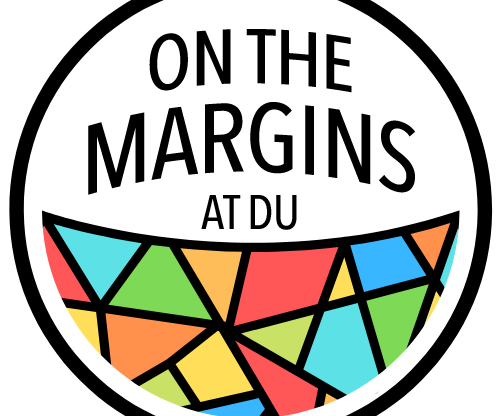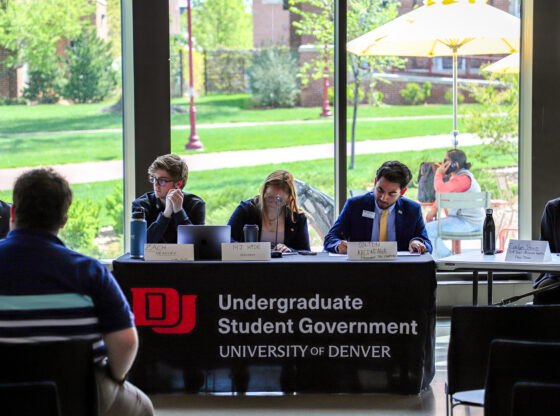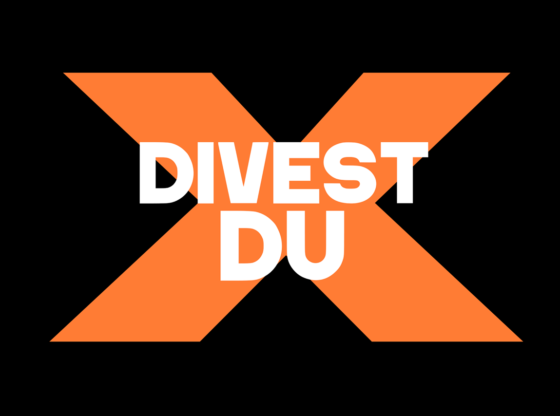This week, as part of our “On The Margins at DU” column that investigates the successes and failures of inclusive excellence at DU, The Clarion spoke with third-year Abdul Ayad. He serves as the external chair on the Diversity Committee, as well as the Diversity & Inclusive Excellence senator for the Undergraduate Student Government (USG). He has previously held leadership roles in the Black Student Alliance (BSA) and the International Student Organization (ISO).
To get involved with the Diversity Committee, reach out to them at divcom@du.edu. Anyone can attend advocacy and support meetings, and applications to be a board member open in the spring.
Minor edits have been made for the sake of clarity.
Kiana: For those who don’t know, what is the Diversity Committee?
Abdul: The Diversity Committee has undergone a massive structural change in the last year. Previously, the Diversity Committee acted as a funding body to create more social events around diversity on campus.
Last year, though, they fought to get my position on USG. They wanted someone who could create a link between the Diversity Committee and USG. From there, it changed from just being a funding body to being a body of empowerment.
There are now two sub-committees: the Finance committee and Advocacy and Support committee. Both are comprised of leadership from the student affinity groups, but we now have Advocacy and Support to focus on how we can best improve the lives of marginalized students on campus. The board itself is comprised of the Advocacy and Support Chair, the Finance Chair, the External Chair, the Internal Chair—who is in charge of strategizing and keeping tabs on joint council—and the Secretary.
Kiana: How inclusive of an environment do you believe DU is for marginalized communities?
Abdul: Personally, I’ve seen [inclusive excellence] as a statement they use rather than an action they take. We talk about diversity with higher-ups, but it’s usually disregarded. It’s gotten to the point where we don’t know if the administration just doesn’t care or they can’t do it.
No, I wouldn’t say they’re inclusive. You don’t get that vibe. You go to class, the students are all white. You talk to the professor, and the professors are all white. You don’t fit in. You try to bring up these experiences—imposter syndrome—to a student who is white, and they don’t get it.
It feels like anything that is done in terms of diversity initiatives comes from the students themselves, not from the University. Once that initiative takes momentum, that’s when the University hops on for the sake of calling themselves an inclusive campus.
Kiana: Where do you think the blame falls? Is it an environment created by administration, by students, or by both?
Abdul: It’s from both. When the majority of this school is white and they don’t care about this issue, the administration doesn’t see it that way either.
But the board of trustees holds a lot of power at DU. A lot of what’s happening behind the scenes has big ties to the money. When #NoMorePioneer took momentum, they were going to remove the word ‘Pioneer’ from this year’s ID cards. But when there was backlash from alums, the University pulled out. It feels like that with any problem on campus. The alum, who don’t go to DU anymore, have more power than the students that actually go here.
Kiana: In what ways has DU succeeded in taking the community into consideration in the past?
Abdul: Getting the Cultural Center was a big jump for us—having a space that was committed to Diversity and Inclusion and people who would advocate for us.
Some students don’t understand why it’s important to have a space like the Cultural Center. But at a predominantly white institution, you have to change the way you speak—the way you are—to fit in. You need a space to talk about these issues with other marginalized students. It’s a source of reflection, and it’s a source of venting you need throughout your college experience.
I’m saying this is one thing they did right, but that’s something we had to fight for. A lot of DU’s “successes” come from the backs of students who have fought for it. There aren’t enough initiatives from DU around diversity and inclusion. They have a Diversity and Inclusive Excellence statement, but they don’t abide by it until a student speaks out about what they need.
Kiana: In what ways has DU failed to take the community into consideration?
Abdul: Something happens and students have demands, and the administration takes too long to respond. When they do, it’s just words. They’re manufactured very carefully through DU’s marketing team. They are meticulously thought of and written out. You don’t feel like it’s an actual response. It feels like they don’t care, and they just want something to combat the media.
A lot of times, students have demands and those are partially met, aren’t met or are just disregarded. They say they’ll take actions, but they don’t actually do it. It’s deceiving, and it’s problematic.
Kiana: What do you hope to see in DU’s future of inclusive excellence?
Abdul: For marginalized students coming in, the first quarter is tough. A lot of racist microaggressions happen in that time period, so I think we need a mandatory course or workshop that educates these students on diversity and inclusion.
I’ve come across that issue multiple times—people will say the n-word to me, and I’ll have to explain to them why they can’t say it because they genuinely don’t know. Those kinds of conversations need to be happening. There should be a course, preferably for freshmen, where they learn more about culture and how to navigate these spaces. Because if we educate people on these issues, they won’t have an excuse. They won’t be able to say they didn’t know.
I want more administrative movement because marginalized students are always fighting to have the best experience we can. I hope it reaches the point where eventually, there doesn’t need to be as much work to do that. Every single affinity group leader, they’re doing so much activism on campus. It takes up much more time than the college student has, and they’re being unpaid for it. Imagine having to be a college student going to classes, going to your job, and also having to go through your day with these persistent issues. You have to try to change that because no one else is and you hope that someone else will be able to live without having this issue.
Kiana: What activism are you currently involved in? What changes are you trying to get implemented at DU that you want students to know about?
Abdul: I created a petition system this quarter through Crimson Connect, so people can finally voice their opinions. It can be about anything and once it gets enough signatures, it’ll get talked about in USG and we’ll try to fix it. Even if it doesn’t get 75 signatures, if me or another senator sees a petition we think is important, we’ll bring it up at a meeting.
I’ve gotten more inclusive Sodexo food options. It was very pork-heavy, and as someone who doesn’t eat pork, it needed more variety. It wasn’t acceptable. One night, while everyone else had a full plate, the only thing I could eat was pasta and sauce. I started working on this last quarter, and I want to keep the momentum going.
I’d also like having a town hall. Get students and administration in one room, so students can talk about what they need. Because there’s a lot of disconnect between the Chancellor, the board, and the students. You shouldn’t have to be in a leadership position to know about what’s happening at your school or get your voice out there. You should have people there to listen.
Kiana: Is there anything else you would like to add?
Abdul: If you want to see things changed and be part of a bigger movement, we want to hear your voices. I can be contacted at abdulrahman.ayad@du.edu, and I hold office hours in the Front Porch Cafe 3 p.m. to 7 p.m. every Monday.
Through this column, we hope to shed light on the range of identities and experiences that exist on campus, create a space where their voices can be heard and highlight their contentious relationship with DU. We hope to represent them with as much journalistic integrity as possible, but we are aware that there are stories we will fail to communicate with the same voice. We aspire to do better than student organizations and institutions, including The Clarion, have done in the past at treating these topics with the thought and consideration they deserve.
If there is feedback you would like to give or issues you would like to see covered in this column, please reach out to duclarioneditorialteam@gmail.com.











